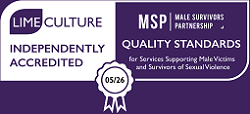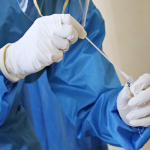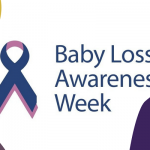BHM 2024
Notts SVSS Celebrates Black History Month 2023
October is Black History Month and our staff and trustees have taken time to nominate people for our list of 31 Inspirational Black People. This is a chance to find out more about Black History and about people who are creating history today. The list includes people like civil rights activist Rosa Parks, writer and actor Michaela Cole, FGM campaigner Valentine Nkoyo and poet Benjamin Zephaniah. If you have people you would like to highlight, please let us know!
Michaela Coel (1987 – present)
‘There is a beauty in carving your own story, conceiving it, at least once, alone, then allowing others to assist in nurturing and maturing it.’
Michaela Coel is multiple award winner for I May Destroy You a television mini-series which covers consent in contemporary life and how in the landscape of dating and relationships, we make the distinction between liberation and exploitation. Besides writing, co-directing and starring in I May Destroy You, Coel was also executive producer for the show, which was inspired by her own experience of sexual assault. You can watch her character Arabella’s monologue here – note that this monologue talks about sexual assault and may be triggering.
You can watch the full series on BBC iPlayer
Akeim Mundell BEM
‘Growing up in a working-class community there are often struggles to achieve academically through feeling demotivation and a lack of guidance’
Akeim Mundell left school at 16. He had failed to get the grades he needed to follow his chosen career in medicine and was unsure what to do. Encouraged by Jenny McGarry, head of St Mary’s C of E – the Moss Side, who had taught him in years 2 and 3, Mundell became a teaching assistant working through his TA career levels.
In 2018 he joined Chorlton High School as a teacher, becoming pastoral leader and head of year. During this time, Mundell was also campaigning for young people in Moss Side. He worked with a handful of boys who needed guidance to stay on the right path, and used that opportunity to meet with counsellors, visit Parliament and speak about the changes needed in the community.
As well as being the UK’s youngest assistant principle at William Hulme’s Grammar School, Mundell is also a founding trustee of the Rekindle Supplementary School in Hulme, which provides free nutritious meals, educational life skills and empowerment programmes.
Friends and Bredrins (FAB) Prostate Cancer Support Group
‘Welcome to the brotherhood.’
Not an individual but a group, Friends and Bredrins (FAB) are a fantastic prostate cancer support group in Nottingham/shire. The group was set up in 2012 with the help of B’ME Against Cancer and promotes prostate cancer awareness and offers support to men and their families affected by prostate cancer.
With experience of prostate cancer, their membership work to raise awareness about risk factors and testing options. They work with males, especially those with Black heritage (who are twice as likely to develop the condition) encouraging them to get tested yearly, enabling more men to live well with the condition and potentially reduce the severity of medical intervention.
FAB receives member referrals direct from Nottingham’s hospitals and also work with the Prostate Cancer UK Black Men’s Health Advisory Group. They worked with us to set up ‘It’s Time to Talk’ men’s health event for Men’s Health Week, which directly led to men getting the PCR (blood test) for prostate cancer and accessing support from other male-relevant services. You can find out more on their website.
Jean ‘Binta’ Breeze MBE (1956 – 2021)
Jean ‘Binta’ Breeze is a poet who expressed female experience through her work. She is recognised as a powerful performance poet and was the first female poet to perform dub, fusing reggae rhythms and music with the spoken word.
Born in Jamaica, she split her time between there and Britain and was made honorary creative writing fellow at the University of Leicester in 2011. Through the Renaissance One project she helped to mentor workshops and poets in Leicester, Nottingham and Derby.
She was known by a member of our staff who described her as ‘an absolute powerhouse of a female.’ You can listen to her performing some of her poetry here
Marc Thompson (1969 – present)
‘When I went to tell other Black gay men about safe sex and avoiding HIV risks, it was simply because I didn’t want anybody to experience the stigma, shame and hurt that I felt’
Marc Thompson is an activist, health promotion specialist, podcaster, co-founder of Prepster and co-director of The Love Tank CIC.
Marc grew up in a small African-Caribbean family in Brixton, south London. He came out as gay when he was 15 to his head of year and had supportive friends and was part of the Black, gay community. He went for a HIV test at 17, fully expecting a negative result, but when it came back positive he was ‘shocked and blown away.’ Over the next few years he journeyed from shock and disbelief towards acceptance.
Apart from night sweats, Marc remained physically okay, although his mental health was ‘put through the wringer.’ There was high racism in 1980s/90s UK and the news was full of anti-gay headlines, which meant that the world felt really dark.
Marc became an incidental activist, after meeting with other Black, gay men who wanted to make a difference. ‘When I went to tell other Black gay men about safe sex and avoiding HIV risks, it was simply because I didn’t want anybody to experience the stigma, shame and hurt that I felt.’ Around 2012, the effectiveness of PrEP (a drug that prevents HIV) and doctors asked Marc and a colleague Will Nutland to help raise awareness. Together they founded Prepster, aiming to ‘educate and agitate’ for PrEP across England. They also launched The Love Tank CIC, helping the vulnerable and marginalised address health inequalitities.
In 2021 Marc was one of 10 everyday LGBTQ heroes honoured at the 2021 Attitude Pride Awards. You can listen to Marc talking about his journey here and in an article in Attitude. The Prepster website includes downloadable booklets that help marginalised people talk to their healthcare providers about PReP.
Cathy Freeman (1973 – present)
‘I’ve had my fair share of being dismissed. But I’m only about to turn 30. And when I finish running, I’m going to be a dangerous woman.’
Catherine Astrid Salome Freeman is an Aboriginal Australian born in Queensland. She recalled how aged 10 she won a footrace but was never given a trophy ‘Apparently because I was black.’
At the age of 16 Freeman became the first Indigenous Australian to win a gold medal at the Commonwealth Games. She was criticised by a commentator for celebrating with both the Aboriginal flag and the Australian flag during her victory lap.
Freeman lit the flame to open the 2000 Olympic Games in Sydney – this marked the organisers’ hopes that the games would bring reconciliation in Australia. 10 days later she won gold in the women’s 400 metres.
In 2007 she established the Cathy Freeman Foundation to assist Aboriginal children with their education.
Merlita Bryan
Merlita Bryan is a Jamaican-born woman who came to the UK in 1962. She trained as a hairdresser and studied trade union politics. In 2007 she was elected as a Labour Councillor for the Arboretum ward of Nottingham City. Since then, she has been appointed Sherriff of Nottingham twice and Lord Mayor once.
In 2011, Bryan set up the Black Achievers Awards ‘which recognises and promotes the achievements of our BME community.’ The awards evening is held every year during Black History Month. You can find out details of the awards, including previous winners here.
Tina Turner (1939 – 2023)
‘There is no strict regimen that says when you are in your late 40s you cannot wear a minidress.’
Tina Turner (born Anna Mae Bullock) was born in Nutbush, Tennessee. She originally sang in her church choir before having a successful career with her husband Ike. Biographies describe domestic abuse both in her childhood home and later in her marriage.
Despite leaving her husband in 1976 with ‘36 cents and a gas station credit card,’ Tina Turner carried on with a solo career. It was quiet for many years but in 1983 she released a remake of ‘Let’s Stay Together’ and in 1984 she released her album Private Dancer. By this time she was in her late 40s.
Turner went on to have many more hits and sang soundtracks for Goldeneye and The Lion King. She was inducted into the Rock and Roll Hall of Fame twice, first with her former husband Ike and later as a solo artist. She remarried in 2013 and lived in Switzerland. She converted to Buddhism.
Valentine Nkoyo
Valentine Nkoyo was born in Kenya and was a student at York St John University from 2009 – 2011. Valentine moved to Nottingham to pursue a Masters in Business Administration. She was founder and director of Mujatu in Nottingham and was behind the work that led to Nottingham declaring itself an FGM-free zone.
Valentine’s community work, in particular her anti-FGM campaigning led to her being invited to have an audience with the late Queen Elizabeth II.
Valentine died in 2023 and a Go Fund Me page was set up for the repatriation of her body to Kenya.
Baroness Doreen Lawrence OBE (1952 – present)
‘I could have shut myself away but that is not me’
Doreen Lawrence is a British Jamaican and mother of Stephen Lawrence, a black British teenager who was murdered in London in a racist attack in 1993. She campaigned against the poor police investigation citing incompetence and racism as prime flaws. This lead to the MacPherson Inquiry and to further campaigns for reforms of the service.
Baroness Lawrence has been invited to sit on panels with the Home Office and the Police and is a member of the board and council for Liberty. In 2003 she was appointed OBE and in 2013 received a peerage. She has written a course called Finding the Inner Strength, in which she talks about how she was able to channel her pain into positivity and change.
Harriet Tubman (1822 – 1913)
Harriet was born enslaved in 1822* and was subjected to beatings and whippings by enslavers, one of these caused a severe head wound. The injury caused dizziness, pain and spells of insomnia throughout her life.
Harriet escaped slavery in 1949. After this she dedicated her life to freeing other enslaved people, beginning with her own family. She was one of many people, black and white, who formed the ‘Underground Railroad’ that took enslaved people to freedom and safety. In all she made over a dozen trips to free around 70 enslaved people.
*As is the case with many enslaved people, her exact birth year is not known, but this is thought to be closest guess.
Maya Angelou – Poet and Activist (1928-2014)
‘Love life. Engage in it. Give it all you’ve got. Love it with a passion because life truly does give back, many times over, what you put into it.’
Maya Angelou was an American born author, actress, screen writer, dancer, poet and civil rights activist best known for her 1969 memoir I Know Why the Caged Bird Sings which was the first nonfiction bestseller by an African American woman, as well as many famous poems such as ‘Still I rise.’
Angelou wrote ‘On the Pulse of Morning’ for the first inauguration of President Bill Clinton. Its themes include include welcoming change, embracing inclusiveness, and facing the past.
Sir Lenny Henry (1958 – present)
‘If you can’t see, you can’t be. If we don’t see BAME people on the TV, or in film, we become invisible.’
Lenny (Lenworth) Henry is an actor, comedian, singer, television presenter and writer. In the 1980s he was the most prominent black British comedian of the time.
In 1985 he co-founded the charity Comic Relief with Richard Curtis. This used a mixture of comedy sketches and hard-hitting documentaries to bring awareness and money to projects supporting people in poverty in the UK and around the world.
Rosa Parks (1913 – 2005)
Rosa Parks was an American Activist in the civil rights movement. She is known for her pivotal role in the Montgomery Bus Boycott, when in 1955 she refused to give up her seat for a white passenger. She was arrested for civil disobedience for violating Alabama’s segregation laws. As a result the Black community boycotted the buses for over a year. The following year, a separate lawsuit resulted in the decision that bus segregation was unconstitutional. You can read more information here.
Sheku Kanneh-Mason MBE – (1999 – present)
“Growing up, I didn’t know of many Black classical musicians.”
Sheku Kanneh-Mason is a black British cellist who won the 2016 BBC Young Musician of the Year Award. He was the first black person to win the accolade since the launch of the competition in 1978. He is a graduate of London’s Royal Academy of Music, played at the Duke and Duchess of Sussex’s wedding in 2018 and became an MBE in 2020. You can find out more and listen to his music on his website.
Dr Benjamin Zephaniah (1958 – 2023)
“This planet is for everyone, borders are for no one. It’s all about freedom.”
Describing himself as a ‘poet, writer, lyricist, musician and naughty boy’, Benjamin Zephaniah was born and raised in Birmingham. His poetry is influenced by the music and poetry of Jamaica and what he calls ‘street politics.’
Zephaniah’s mission is to take poetry everywhere. His first collection was published by Page One Books, while many other publishers ignored him. However, he got noticed as a performance Dub (Reggae) Poet, and then got offers from many publishers. His poetry could often be heard at protests, youth gatherings and other spaces during British unrest in the 1980s.
Zephaniah has performed across all seven continents but his favourite tours are where the oral tradition is still strong. The accessibility of his work means that he continues to inspire many young writers. He is passionate about politics and poetry and is a regular guest on Question Time.
In 2003 he was offered but turned down an OBE. You can find out more about him on his website.
Recy Taylor (1919 – 2017)
Recy Taylor was born in 1919 and grew up in Abbeville Alabama. She married and lived with her husband and daughter in a sharecropper’s cabin. One evening when she was aged 24, after attending a special church service, she was abducted at gunpoint in front of her friends by a group of seven white men. She was driven away, subjected to multiple rapes before being dumped on the side of the highway.
Despite it being very dangerous for African Americans to speak out and seek justice at the time she bravely testified. Rosa Parks, the NAACP and other activists supported her during this time. She was repeatedly denied justice, despite four of the men confessing to what happened. It wasn’t until almost 70 years after her assault, following publication of her story in a book by historian Danielle L McGuire, that Alabama Legislature issued a formal apology to Taylor. You can read more about her story here.
Mass Ndow-Njie
‘A bar that represents society also benefits society’
Mass Ndow-Njie is an award-winning barrister and founder and chair of Bridging the Bar, an organisation committed to increasing the equality of access to opportunities in the legal profession ‘regardless of race, sex or class.’ He is proud of his Gambian background and interests. Through his work, attitude and work in equality and diversity he asks why try to fit in, when you’re born to stand out?
Cairo Nevitt
‘Always be proud of your roots and the things that make you different: those are your blessings, not a hindrance. Own who you are.’
Cairo Nevitt is a trans male of Caribbean and English Heritage. He is a personal trainer and the first ever trans man to be featured in a mainstream fitness magazine. He has since gone on to feature on a Starbucks advert highlighting the importance of his name/diversity being recognised, has been featured in Gay Times on what it means to be a trans man of colour in the UK and is featured in this year’s Stonewall BHM campaign.
Tonia Wilson
Tonia Wilson has over 30 years of experience working with families and young people with a focus on inequality, diversity, GBV and inclusion. She is the project manager of WASSUP, which stands for Women Against Sexual Exploitation and Violence Speak Up, a group in Suffolk that is ran by Volunteering Matters. This project is targeted at gang grooming & sexual violence. They have created a toolkit and deliver this project to schools in their local area: https://volunteeringmatters.org.uk/project/wassup/
Wilson is also Director of Learning & Development for Aspire Black Suffolk which work to help empower communities and provide diversity and inclusion training: https://www.aspireblacksuffolk.org.uk/
In 2021 she was offered but declined an MBE.
Dr Rose Thompson (1956 – 2023)
Rose was born in Nottingham to parents Samuel and Monica who came to Britain as part of the Windrush Generation. She was one of the first qualified Black radiotherapy radiographers. Her own mother died of breast cancer at age 47. She went on to loose two more sisters. Rose’s observations that black people were being diagnosed with cancer at young ages drove her to improving cancer awareness and care for people in society who were frequently overlooked.
In 2009, Rose founded BME Cancer Communities, aimed at addressing cancer inequalities in BME and low-income communities. She also established two Cancer Support Groups: Friends and Bredrins and Sistas Against Cancer.
Rose’s two reports ‘Hear Me Now!’ written in response to evidence that black men were twice as likely to die from prostate cancer in the UK were launched in Parliament in 2013. This launched the ‘Hear Me Now!’ campaign, which included the first prostate cancer risk assessment drop in.
Rose’s tireless campaigning led to the dropping of PSA testing from 55 to 45, adjustments to breast cancer screening, provision of prosthetic items suited to people of colour and the establishment of a hair and wig service for black women undergoing chemotherapy.
In 2017 Rose received an honorary doctorate of Social Science from Nottingham Trent University in recognition of her work.
She died from breast cancer in 2023, having been diagnosed 8 years previously.
Dr Martin Glynn (1957 – present)
‘Is it appropriate for us to take on the traits of other people to the detriment of our own self?’
Martin Glynn was born in Nottingham to a white mother and black father of Jamaican heritage.
He is an experienced and internationally renowned criminologist, educator, theatre director, and dramatist with over 35 years’ experience of working in criminal justice, public health, and educational settings.
As a writer Martin has written for BBC1’s Casualty, had radio dramas produced for BBC Radio 4, written and directed numerous theatre productions. He has written many books and article including Black Men, Invisibility, and Desistance from crime: Towards a Critical Race Theory from Crime.
He is a Lecturer in criminology and black studies at Birmingham City University. You can hear a conversation with Dr Glynn for Black History Month 2022 here.
Panya Banjoko
Panya Banjoko is a poet, educator, and patron of Nottingham UNESCO City of Literature. She has also worked for many years in museums and saw a need to develop an archive that documented black history, heritage and culture in the city of Nottingham.
Panya founded Nottingham Black Archive in 2010. The archive aimed to research, collect and preserve Black history, heritage and culture in Nottingham, from the earliest time to the present day. The collection holds some of the earliest documents relating to the formation of Black community organisations in Nottingham, as well as, a growing archive of oral histories, including many from the first generation of Africans and Caribbean’s to reside in Nottingham. Your can find out more about the Nottingham Black Archive online.
Colin Jackson (1967 – present)
Colin Jackson was born and lives in Wales. He is a former sprint and hurdling athlete. He won an Olympic silver medal, was world champion twice and was undefeated at the European World Championships for 12 years. Between 1993 – 1995 he had a streak of 44 races undefeated.
In his youth Jackson was passed over for selection for the Welsh national cricket team when 3 of his mates were selected. He then focussed on athletics as “athletics had more people that looked like me.”
Simone Biles (1997 – present)
‘Put your mental health first… That’s more important than any other medal you could win.’
Simone Biles is an American artistic gymnast who has won 11 Olympic medals. She has also won 30 World Championship medals and is the most decorated gymnast in the history of the Gymnastics World Championships.
In January 2018, Biles revealed that she had been sexually abused by a USA Gymnastics Physician. She also blamed the entire system for allowing this to happen. She and other teammates testified at the Senate Judiciary Committee on this issue.
During the Summer Olympics 2020, Biles dropped out of the team final as she needed to prioritise her own mental health. While she received criticism from some commentators, she was widely praised for prioritising her mental health and starting a wider conversation about mental health in sports.
In 2023 Biles returned to competition. She has since won several World Championship and Olympic medals and became the oldest woman to with the US National Title.
Sir Learie Constantine (1901 – 1971)
Learie Constantine was born in Trinidad, which was then part of the British Empire. Although slavery had been abolished almost 70 years before his birth, opportunities for Black Caribbeans were limited and systems were inherently biased.
Constantine was a talented cricketer and came to England in the 1920 and made a name for himself in the Lancashire league, whilst experiencing racism that marked life for Black immigrants. In 1943, Constantine and his family were refused service at the Imperial Hotel in London because of their race. This moment led to a groundbreaking legal case. His victory in 1944 set a precedent for future legal battles in the pursuit of justice.
In 1961 he was appointed High Commissioner for Trinidad and Tobago. In 1969, Constantine became the first Black peer in the House of Lords, where he continued to advocate for civil rights and dismantle the institutional barriers that oppressed Black Britons.
Dame Kelly Holmes MBE (1978 – present)
Kelly Holmes was born to a Jamaican father and an English mother. No stranger to adversity herself, Holmes grew up on a council estate and spent time in care in her early years. It was her PE teacher who spotted her talent for running.
Despite excelling in athletics at a young age, Holmes joined the British Army aged 18, becoming a HGV driver and a physical training instructor. She was awarded the MBE after almost 10 years’ service. Holmes kept up with athletics and in 1992, when she saw somebody she had beaten competing in the heats at the Summer Olympics, she decided to return to athletics.
After winning an array of medals, Kelly Holmes took part in her final Olympics in 2004 where she was the Olympic Champion in both the 800m and 1500m races. She became a Dame in 2005.
In June 2022, Holmes came out as gay adding that she finally felt free. She had known since 1988 that she was a lesbian but could not come out in the army, as it was illegal at that time to be gay in the military. Since then she has done much work to help add her voice to the campaign for LGBT+ people in the armed forces.
The Dame Kelly Holmes trust was set up in 2008 to benefit young people. The trust works with existing and former world class athletes to mentor young people facing challenges in their everyday lives. You can find out more about the trust here.
Linda Bellos (1950 – present)
Linda was born in London to a white Polish, Jewish mother and a Nigerian Yoruba father. Her mother was disowned by her family for marrying an African Christian which is indicative of the barriers her parents broke through.
Linda was elected to Lambeth Borough Council in 1986 and made history as the first Black woman to hold the position of leader. She staunchly defended minority rights and addressed social inequalities at a local level. As an openly lesbian women, she also advocated for LGBTQ+ rights.
Linda’s work has seen her challenging institutional racism, promoting diversity in the workplace and ensuring that Black history is recognised and honoured. She was involved in the establishment and promotion of Black History Month.
Sir Mo (Mohamed) Farah (1983 – present)
‘I used to get called “Ferrari” when I was a kid because I was always running everywhere.’
Mo Farah is a recently retired British-Somali long-distance runner. He is considered one of the greatest distance runners of all time with four Olympic gold medals and six World titles.
In the documentary ‘The Real Mo Farah’, it was revealed that he was born Hussein Abdi Kahin and was trafficked from Somalia to London at the age of nine under the name Mohamed Farah, where he was forced into child labour. After telling his PE teacher, he was then given to the care of a Somali friend’s mother. The school obtained British citizenship for him through deception, enabling him to compete in running events internationally.
He is one of the most famous victim-survivors of Modern-Day Slavery.
Daniel Kaluuya (1989 – present)
Daniel Kaluuya is a British actor and writer. He is best known for Get Out (2017), Black Panther (2018) and for portraying Fred Hampton in Judas & The Black Messiah (2021).
While still at school he was recruited as a contributor writer and actor for the critically acclaimed UK teen drama series Skins (2007). Before long, and while still in his teens, he was writing full hour-long episodes for the show, making him one of the youngest people ever to write an episode of primetime drama.
When he won the Academy Award for Best Supporting Actor in Judas and the Black Messiah (2021), he became the first black British actor to win an Oscar (Los Angeles / 25 April 2021).
At age 32, he’s the youngest black actor to have received two Oscar nominations.
Jackie Kay CBE, FRSE, FRSL (1961 – present)
Jackie Kay is a Scottish poet, playwright and novelist. Born to a Scottish mother and a Nigerian father, she was adopted as a baby by a white Scottish couple. Her works for the stage include Twice Over which was the first play by a black writer to be produced by ‘Gay Sweatshop Theatre Group.’ Her drama The Lamplighter is an exploration of the Atlantic Slave Trade.
She is Professor of Creative Writing at Newcastle University and is ‘Scots Maker’ (national poet of Scotland). She was appointed MBE in 2006 and CBE in 2020.






